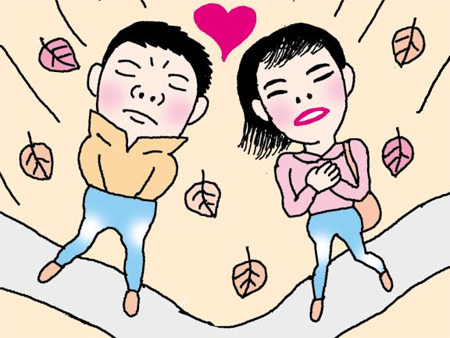
이런 계절적 짝짓기 현상(the seasonal phenomenon of pairing-up)은 단순한 희망 사항이 아니라(be not just wishful thinking) 과학적 사실(a scientific fact)이라고 한다. 신경생물학자들에 따르면(according to neurobiologists) 날씨가 추워지면(turn cold) 두뇌에 영향을 미쳐(affect their brains) 이성에 대한 반응에도 변화를 가져온다(bring about a change).
미국 플로리다주립대학교 연구팀은 과학적 근거(a scientific basis)로 지속적 일부일처 관계를 형성하는 성향이 있는(have a tendency to form enduring monogamous relationships) 초원 들쥐를 예로 든다(hold up the example of prairie voles). 이 들쥐들의 영속적인 암수 한 쌍 관계(the lasting pair-bonds)는 뇌 속의 호르몬인 옥시토신, 바소프레신, 도파민 등 사랑의 미약(媚藥) 혼합제의 결과(a result of a love potion cocktail in the brain involving oxytocin, vasopressin, dopamine and so on)라고 한다. 특히 보상과 기쁨에 관련된(be associated with reward and pleasure) 뇌 부위의 옥시토신 양과 그 수용체 유전자 발현에 영향을 받는다(be influenced by the amount of oxytocin and the gene expression of its receptors).
그런데 이 들쥐의 뇌가 성적으로 끌리는 신호를 처리하는(process the signals of attraction) 과정에 날씨가 영향을 미치는 것으로 조사됐다. 평상시보다 쌀쌀해지면 옥시토신 등 호르몬 분비를 유발해(induce secretion of hormones) 암수가 서로 더 탐하게 된다는 것이다. 과학자들은 이러한 성적인 끌림의 화학적 반응(the chemical reactions of attraction)이 사람에게도 똑같이 나타난다고 말한다.
"가을은 모든 잎이 꽃이 되는 제2의 봄"(알베르 카뮈·프랑스 작가)이라고 했다. 쌀쌀해진 날씨가 모든 청춘 남녀들이 꽃처럼 보이게 하는 계절이다.